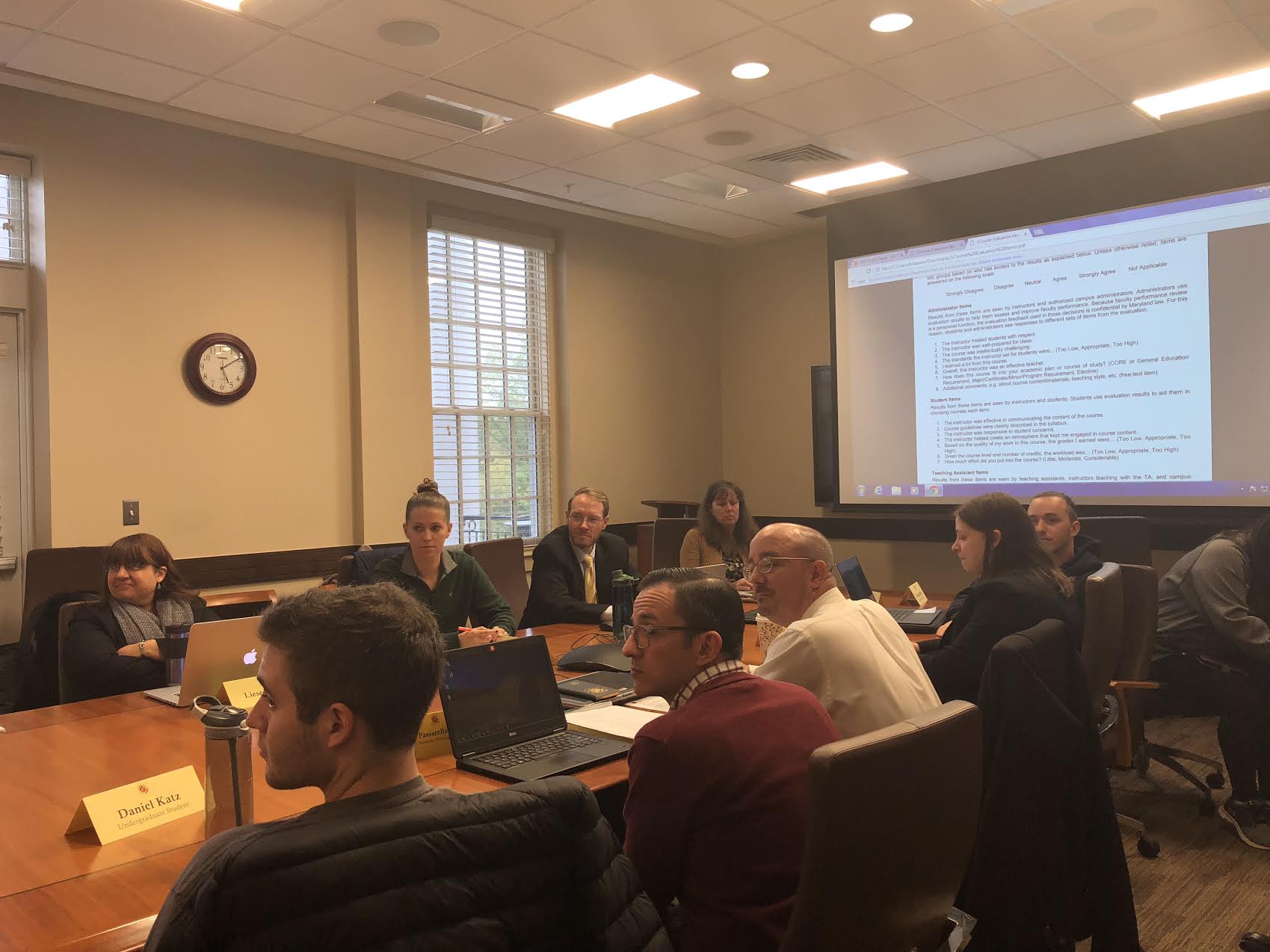Views expressed in opinion columns are the author’s own.
On Monday, a University of Maryland Senate committee met with the Student Affairs Committee to discuss changes to the current system of course evaluations. Student Affairs Committee member Daniel Katz proposed giving students access not only to numerical ratings, but also to written comments by previous students in course evaluations.
The prospect of full access to student course evaluations is compelling; as it currently stands, students heavily rely on word of mouth and other non-university affiliated websites such as RateMyProfessors.com to discern class quality, general workload and professor disposition. While these resources work well enough, the fact that students feel they must rely on outside measures to make well-informed registration choices says a lot about the relationship between students and this university.
[Read more: University of Maryland Senate is considering changes to course evaluations]
The data backs up the contemporary media narrative: A college education is increasingly valuable. In 2016, the Bureau of Labor Statistics reported that unemployment rates for those with associate’s, bachelor’s, master’s, professional and doctoral degrees were lower than for those with a high-school diploma or less. Likewise, median weekly earnings steadily correlate with educational attainment — the only discrepancy being that professional degree holders slightly out-earn doctoral degree holders. The evidence is fairly clear: For many, college is becoming less of a choice and more of a necessity.
Despite the growing necessity of a college education, costs remain ridiculously high. The total student loan debt in the United States, both federal and private, is in excess of $1.4 trillion, and more than 40 percent of student loan borrowers owe $20,000 or more after leaving college. None of this is surprising — the loan crisis is nothing new to most people, especially students at this university. This means it’s time for universities to begin treating their students differently.
Facing massive price tags at universities across the country, students have become just as much consumers as they are academics. A lot of us here are spending our own money, or future money, and that entitles us to more than just anonymous numeric ratings from mandatory evaluations. We’re entitled to what all consumers deserve: relative transparency.
This university already does a fairly good job at maintaining some transparency. All university employees’ salaries are available online through this publication, and in general, the university has a middling-to-good track record for making graduation statistics, post-graduate statistics and course information available to students.
So why doesn’t the same logic apply to course evaluations, which can have a serious impact on a student’s academic career? Why are students not given all the tools necessary to make appropriate course decisions? As both students and consumers, we deserve more information than what this university currently deems acceptable to provide.
Caitlin McCann is a sophomore communication major. She can be reached at caitlinmccann32@gmail.com.



